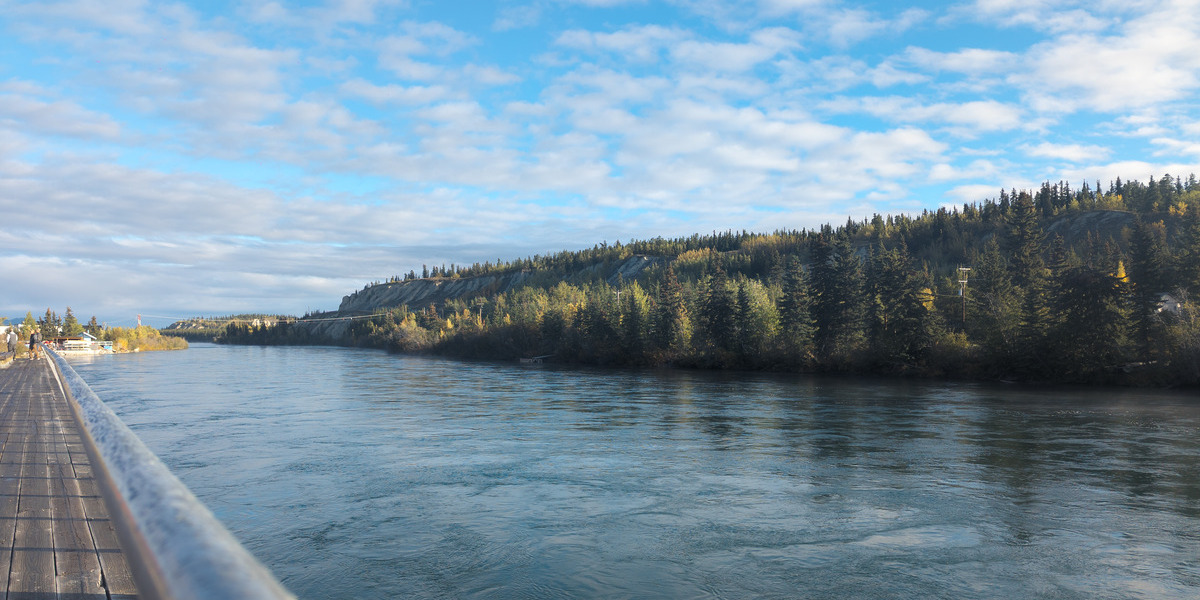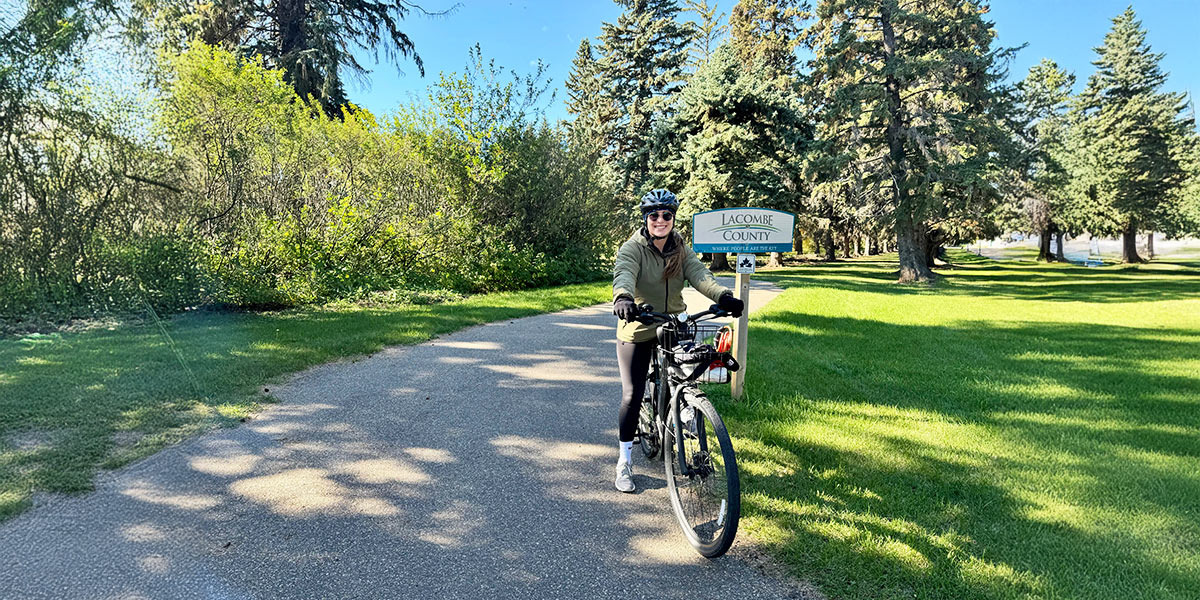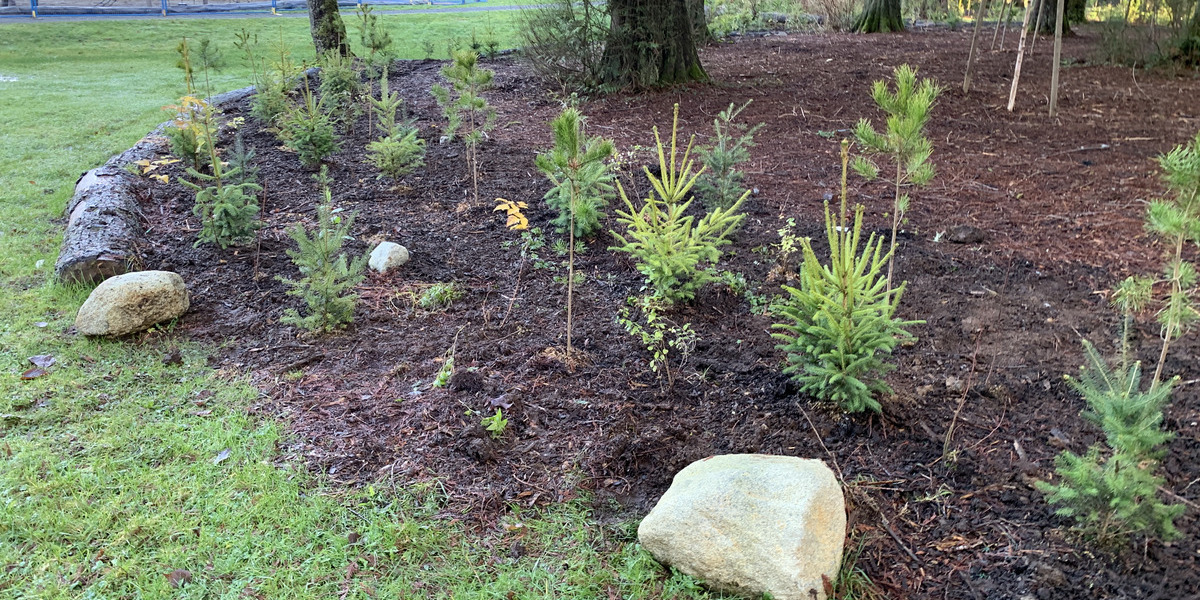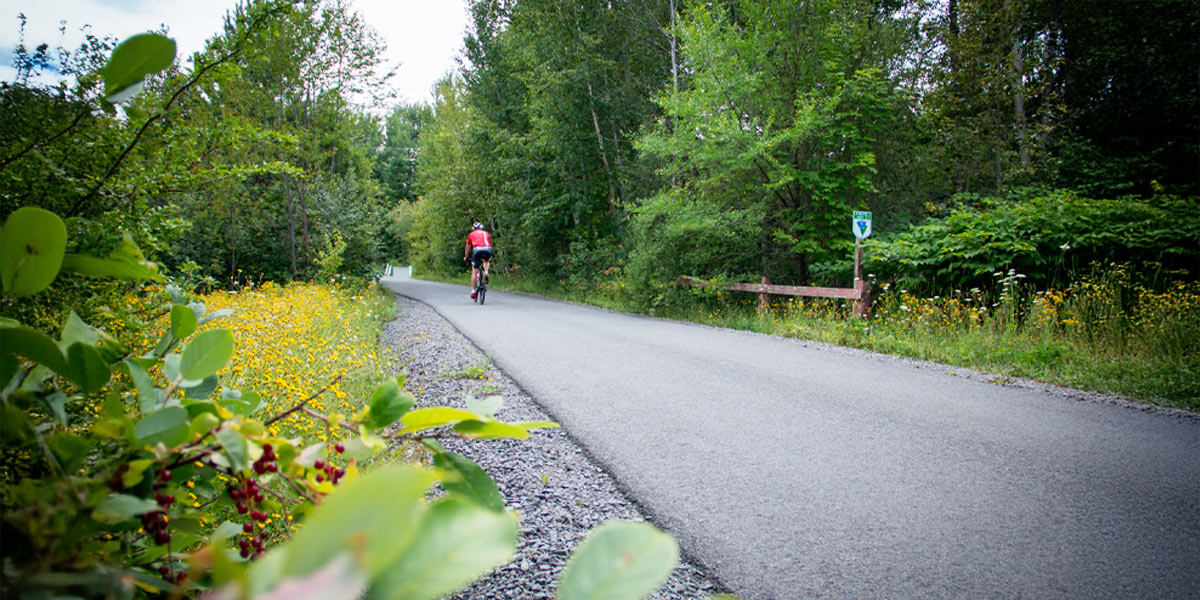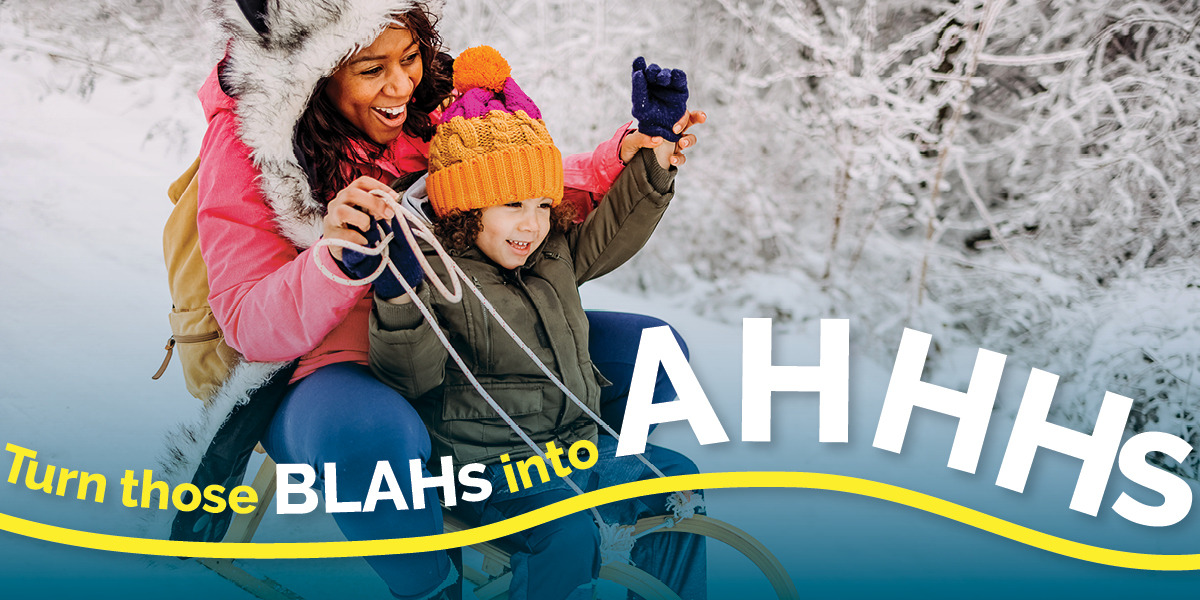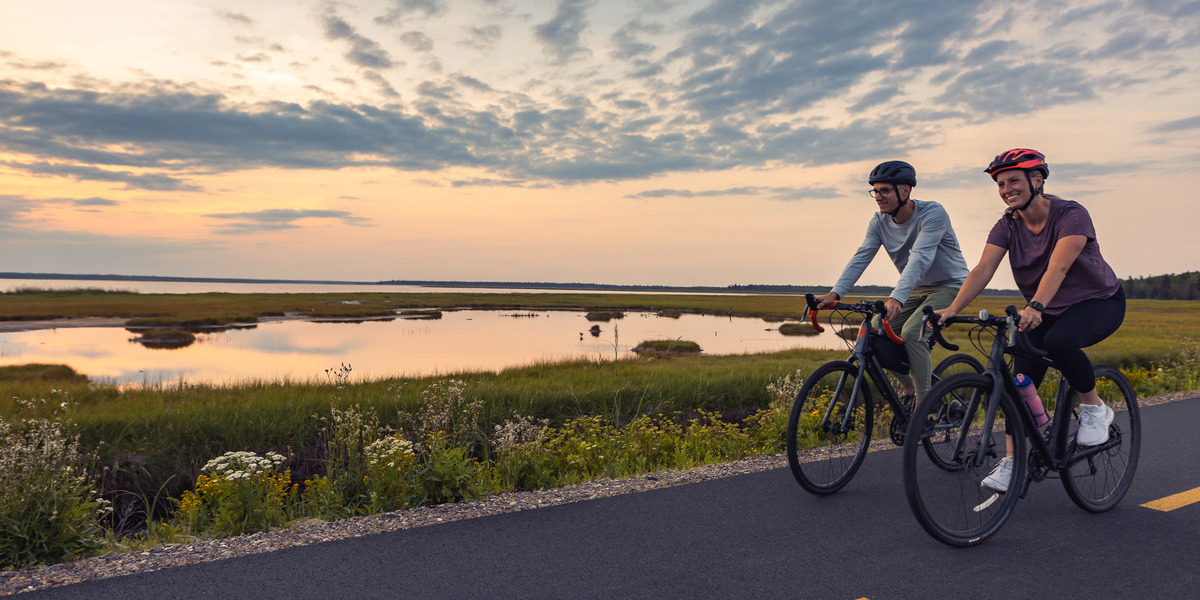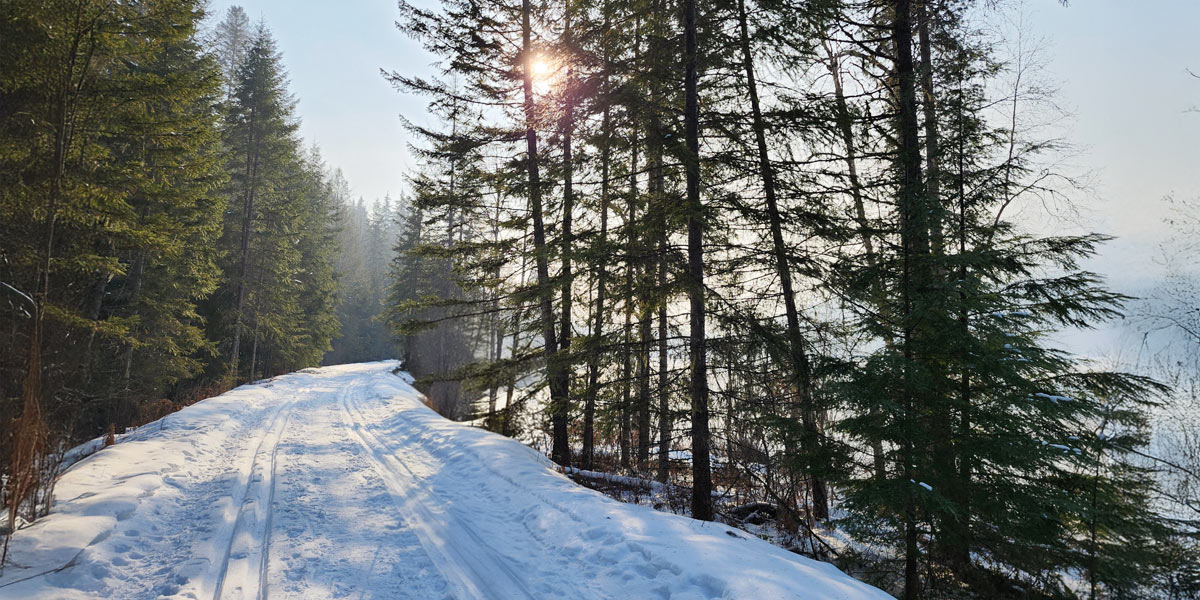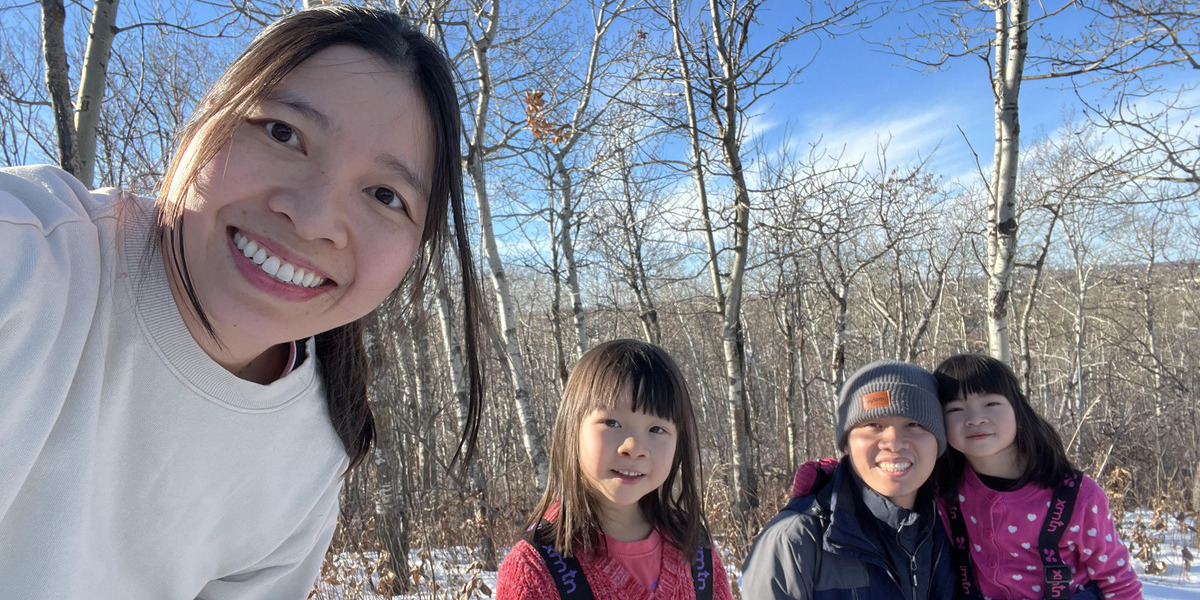Creating an Accessible Space Along the Trans Canada Trail
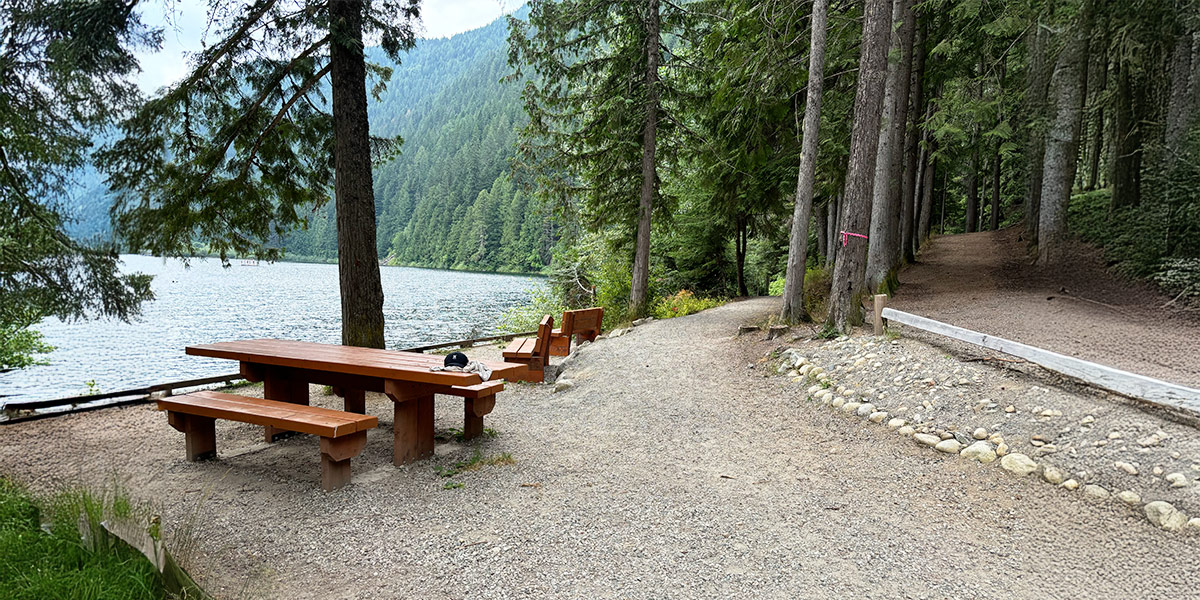
An accessibility upgrade in Cottonwood Lake Regional Park in the Central Kootenays
Cottonwood Lake Regional Park near Nelson, BC, provides waterfront access to Cottonwood Lake and activities including fishing, swimming, canoeing and access to walking and cross-country ski trails. It’s a popular year-round recreational area in the region and is situated just outside of town. We spoke with Cary Gaynor, Regional Parks and Trails Manager with the Regional District of Central Kootenay (RDCK), about a recent trail construction and accessibility project: what was needed for the work, how it went, and why Cary sees this project as critical to helping everyone access the outdoors.
Making the park accessible and creating a connection to the Great Northern Rail Trail
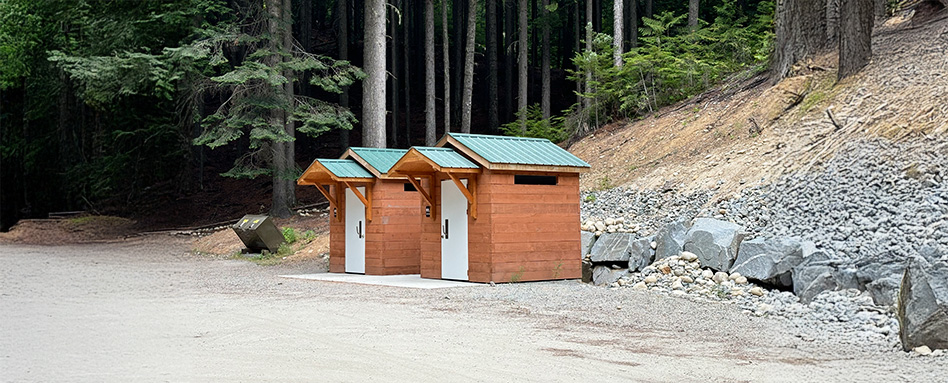
In 2019, the RDCK purchased approximately 21 hectares of land around Cottonwood Lake, adjacent to the existing Cottonwood Lake Regional Park.
“With the purchase of additional land surrounding the existing park boundaries, there was a desire to make the space accessible. We wanted to open up the park to a wider range of the population and to not only connect the park to the Trans Canada Trail, but also to create a place to enjoy for those using the Nelson to Salmo Great Northern Rail Trail,” Cary says.
A multi-phase construction and upgrade project
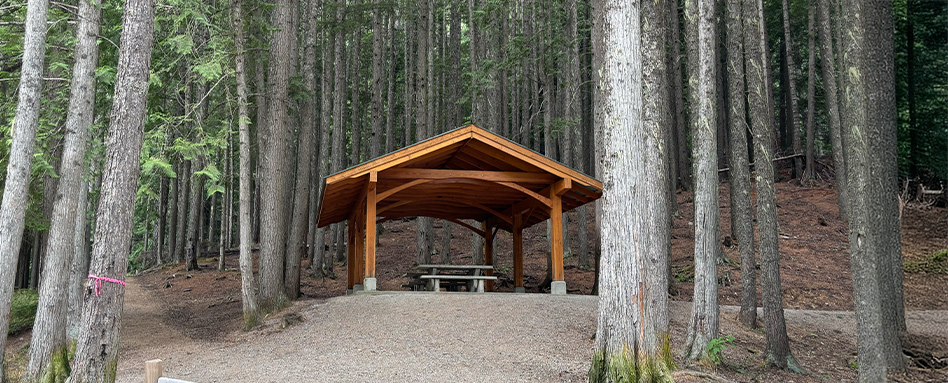
Through an initial planning grant from Trans Canada Trail in October 2019, and a more substantial Trans Canada Trail grant in April 2020, along with additional funding from RDCK electoral areas E, F and G, the project was able to get off the ground. The RDCK also partnered with Kootenay Adaptive Sports Association (KASA) and the BC Wildlife Federation on elements of the project.
Construction of the 1,200 metres of new Trans Canada Trail and the parking lot and trailhead areas was completed between 2021 and 2022. Construction of two accessible viewing platforms, dock replacement, bridge replacement and a newly designed accessible picnic area followed the next year. Most of the project was complete by 2023.
All in all, this project included the following elements:
• An accessible dock replacement
• Two new accessible lake viewing platforms
• An accessible picnic area, which includes picnic table and bench
• An accessible path to the picnic shelter and beach area
• A new footbridge
• Improved accessibility to two existing shelters
• The replacement of a new accessible bridge to access the Great Northern Rail Trail
• A new accessible toilet facility
• A new parking area and trailhead parking areas, with designated accessible parking spots
A major increase in trail use – and overwhelmingly positive feedback
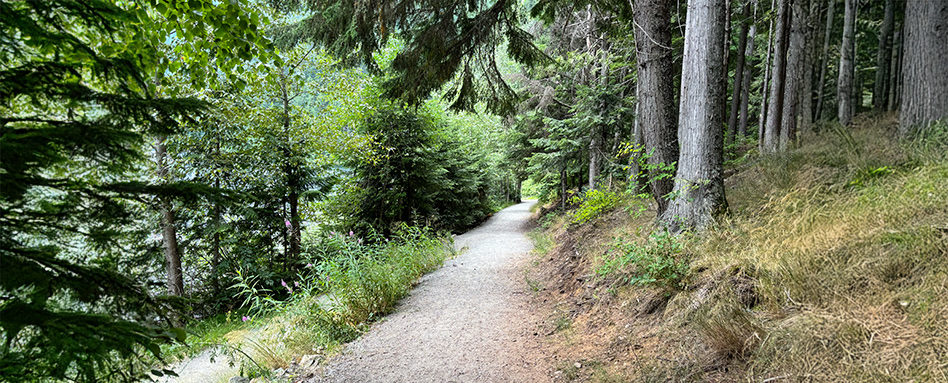
Cary says he’s seen a substantial increase in park users since 2019. “We currently have trail and road counters set up at Cottonwood Lake. Although our counters do not capture all of the users, as multiple entrances do exist, our data suggests the average number of park users from 2019/21 to 2022/24 has increased by 15,000 people per year,” he says.
Cary notes that in addition to what the trail counters show, user feedback reinforces the impact of the upgrades. “People are incredibly happy with the work that has been done. After the first week of the viewing platform being completed, we arrived at the park and found a [person using a] motorized wheelchair going out to visit the viewing platform. It was very rewarding to see.”
Trisha Kaplan, Trans Canada Trail’s Director, Trail Inclusion Initiatives, says, “The Cottonwood Lake accessibility improvements are a terrific example of a meaningful accessibility project. The staff at the RDCK considered all aspects of the site. Instead of implementing one or two accessibility initiatives, they improved the accessibility of the entire site so visitors can enjoy the experience as much as possible.”
Advice for other trail groups looking to undertake accessible trail construction and upgrades
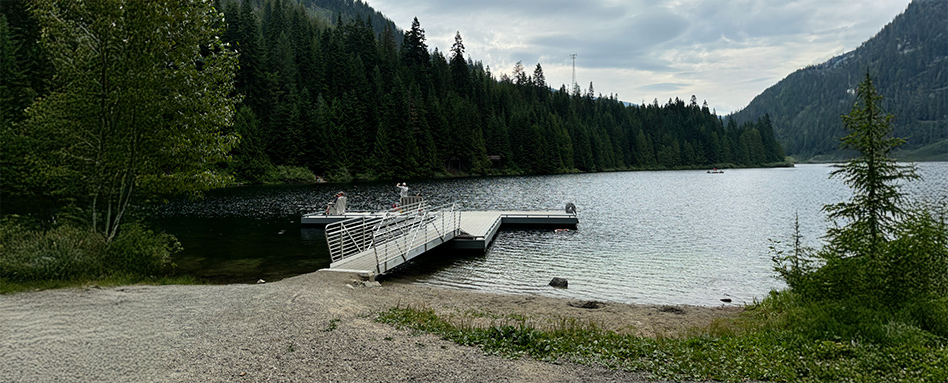
A project of this scope is a significant undertaking, and Cary says the key is in planning and clear communication. “Take your time, plan the process as best you can, encourage partnerships and keep stakeholders informed of your ideas and progress,” he says.
Learn more about All Persons Trails and funding opportunities to make your trail more accessible
If you are interested in making your trail more accessible, we can help! Check out our All Persons Trail Guidelines for ideas and suggestions. And for those trails along the Trans Canada Trail, check out our Accessibility and Inclusion Funding Stream, or email inclusion@tctrail.ca for more information.



